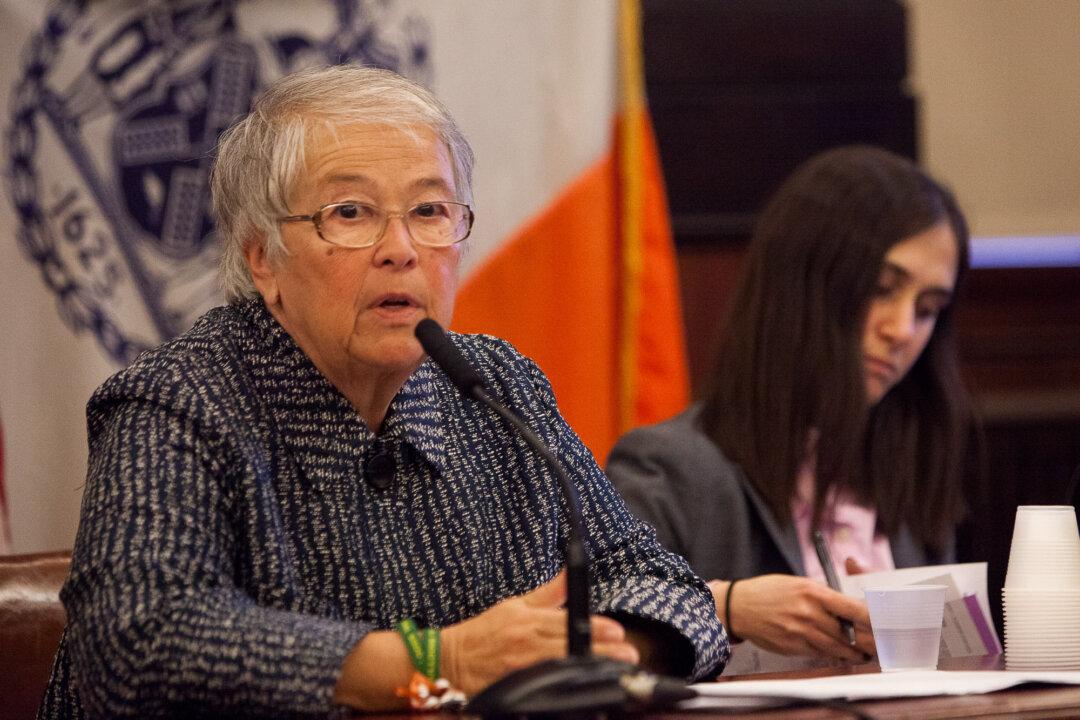NEW YORK—New York City Schools Chancellor Carmen Farina explained more details of her plan to create 73,250 full-day prekindergarten seats by September 2015, while testifying before a joint meeting of the City Council committees on Education and Women’s Feb. 11.
The universal pre-K plan is one of the centerpieces of Mayor Bill de Blasio’s agenda. He plans to pay for it by raising the income tax on New Yorkers who earn more than 500,000. But the tax increase has to be approved by the state Legislature in Albany, where Gov. Cuomo has proposed his own pre-K plan. State Senate Co-leader Dean Skelos said that he wouldn’t allow a vote on the issue.
There are now over 56,000 pre-k seats in the city, most of which are half-day.
Farina seemed undeterred, preparing to create as many pre-K seats as possible by this September.
“In education, we always have a plan B and if necessary a plan C,” she said in response to a question about what to do if the tax increase won’t go through. “But we have to be optimistic, otherwise they’ll tell us to go right to plan B.”
As for the state money for pre-K Cuomo promised, she said “it should be supplement, not in place of” the money de Blasio wants to secure by the tax hike.
Farina announced to meet with deans of universities in the city which provide certification in early childhood education. She plans to convince them to give such courses a priority, since the city would need 2,000 more pre-K teachers.
As for spaces, Farina said she asked schools and community-based organizations (CBO) to assess their available spaces themselves and apply their existing or planned pre-K programs to DOE for a review. The deadline for DOE providers is Feb. 14. For CBOs, the deadline is Feb. 20.
The review should ensure the programs are of a sufficient quality. The DOE put up a notice a week ago that it’s hiring part-timers to help with the reviews. Applicants should be able to conduct site visits and “work in a fast-paced, stressful environment,” according to the DOE website.
Farina wants to ensure that quality teachers are hired. Candidates for pre-K positions must have experience working with four-year-olds. The department also plans to provide at least a week of intensive training for every pre-K teacher.
“You’ve got to be the right person for this job,” Farina said.
In neighborhoods suffering from overcrowded schools, Farina said she will depend more on CBOs. Such sites may be harder to staff though, as CBOs usually offer lower salaries and benefits than DOE pre-K providers. For this reason CBOs also have a hard time retaining quality teachers.





